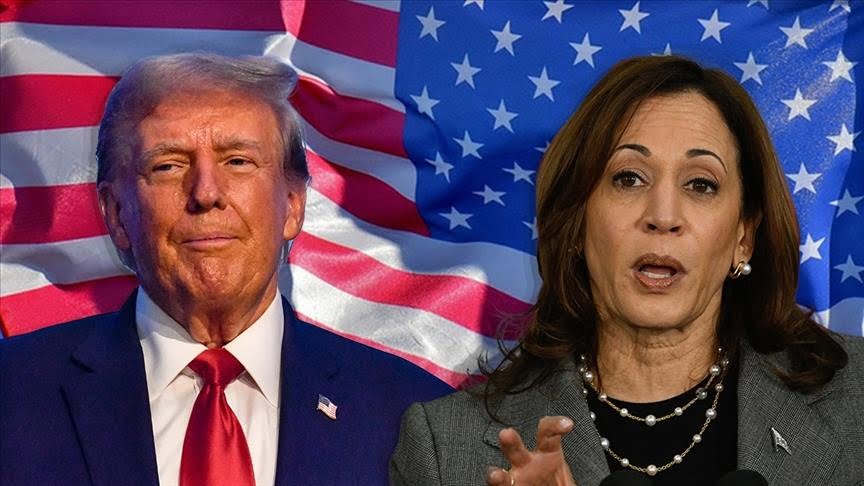
Introduction:
In August 2024, the Dor Moriah Analytical Center conducted an expert study, which served as the foundation for developing tools to gauge public opinion in Israel on key internal and foreign policy issues.
Previous research has identified the presence of a “new divide” in Israeli public consciousness, linked to expectations regarding the outcome of the U.S. presidential elections (September 2023).
– Significant differences in expectations between secular and religious groups of Israelis.
– Correlation between political preferences and expectations from the U.S. elections.
– Consensus regarding the impact of the election results on Israel’s national security.
Expert Survey Findings:
Experts primarily attribute the growing tension between Israel and the U.S. to disagreements over the Palestinian issue, the rights of the Arab minority in Israel, and approaches to relations with Iran.
The level of Israel’s independence from the U.S. over the past 10 years shows an overall slight weakening trend. However, in some areas, there are signs of increased independence, such as Israel’s focus on diversifying its international relationships and striving for greater autonomy in regional politics. Nevertheless, dependence on the U.S. for security and diplomatic support remains high.
In general, expert opinions converge on the need for Israel to enhance its independence from the U.S. (pursue a more independent policy, especially in matters of human rights and relations with the Palestinians, while continuing to strengthen ties with other economic centers such as the EU, China, and India, without undermining relations with the U.S.). Maintaining strong ties with the U.S. is still seen as critical for Israel’s security.
At the end of August 2024, a large-scale sociological survey was conducted. The study was carried out through a special online survey among 1,000 respondents, aged 18 and older, representing a national sample of Israel’s population (both Jewish and Arab sectors were part of this population).
The maximum margin of error was 4.4% with a 95% confidence level.
Detailed answers to questions:
To what extent are you following the U.S. election campaign? (%)

To what extent, in your opinion, does the situation in the following areas in Israel depend on relations with the U.S.?

Which candidate, in your opinion, would be better for Israel as the next president of the United States?

In your opinion, how would the election of each of the following candidates as president of the United States affect the Israeli-Palestinian conflict?

How do you think the election of either of these U.S. presidential candidates would affect Israel’s relations with BRICS (Asia, Africa, and Latin America)?

Which post-war order model do you think each of the U.S. presidential candidates would prefer?

How did you vote in the Knesset elections in the last two election cycles?

Have you participated in demonstrations or protests in the last three years?

You:

Where were you born?

Conclusions
Two-thirds of Israelis express a keen interest in the U.S. presidential election. This is undeniably due to the significant role of the U.S. in Israel’s affairs. Interest in this topic does not correlate with educational level, country of birth, and only slightly with higher income. The Jewish population shows significantly more interest in this topic compared to the Arab population.
Most Israelis believe that Israel is most dependent on the U.S. (in terms of significance) for its international status and influence on global processes, as well as for international economic cooperation and national security; the area in which Israel is least dependent on the U.S. is domestic politics.
Some consensus on the (in)dependence of various areas of Israel from the U.S. is observed only regarding domestic politics. This is the only area that Israelis generally consider to be independent of the U.S. The greatest disagreements between secular, traditional, and religious Israelis regarding the (in)dependence of Israel from the U.S. are related to the areas of national security and the Israeli economy.
Secular Israelis are more likely to note a greater dependence on the U.S., followed by traditional Israelis, while religious respondents characterize the dependence as the lowest.
Almost 60% of respondents believe that in the upcoming U.S. presidential election, a victory for Republican candidate Donald Trump would be more favorable for Israel, whereas only 15% think the same about Democratic candidate Kamala Harris.
Responses from secular and various degrees of religious (traditional and Haredi) respondents are entirely opposite:
- Secular Israelis more frequently view Kamala Harris, a Democratic candidate, as preferable, associating her victory with a successful resolution of the Israeli-Arab conflict.
- Traditional and religious Israelis more frequently indicate a preference for a victory by Republican candidate Donald Trump, associating him more with resolving the conflict.
In any case, Israelis overwhelmingly associate positive expectations for resolving the Israeli-Palestinian conflict with a victory for Donald Trump in the presidential election.
Israelis mostly associate the shaping of relations with BRICS countries with Donald Trump’s victory. However, secular respondents, more than traditional and religious ones, expect Kamala Harris to have a positive impact on these relations.
Regarding the preferred post-war order models for Israel, a rare consensus (59% of respondents) is observed for Kamala Harris’s preference for the “Two-State Solution.” Donald Trump is most frequently expected to support the “Annexation of Territories” model (23.9%). The distribution of other responses regarding her position on Israel’s post-war arrangement among secular and religious Israelis is nearly identical, unlike the responses concerning Donald Trump’s preferred model. Two multidirectional trends are noticeable here. As the level of religiosity decreases (from religious to secular), the proportion of responses favoring the “Two-State Solution” model increases from 15.1% to 24%, while the proportion favoring “Annexation of Territories” decreases from 27.6% to 19.6%.
